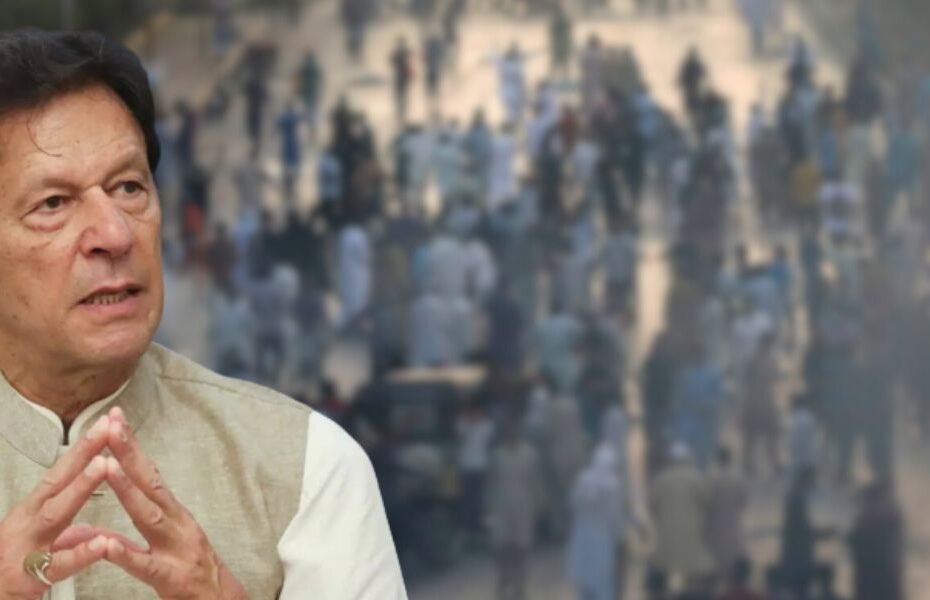Pakistan is gearing up for elections amid controversy and allegations of interference with the political process. Former Prime Minister Imran Khan, disqualified from running and facing multiple jail sentences, has cast a shadow over the electoral landscape. His party, the PTI, contends with challenges as candidates run as independents and face accusations of intimidation and harassment. As the nation prepares to cast its votes, uncertainties loom large over the fairness and transparency of the electoral process.
Imran Khan’s Disqualification and Jail Sentences
The electoral environment in Pakistan has been marred by the disqualification of former Prime Minister Imran Khan from running in the upcoming elections. Khan, a prominent political figure, received three jail sentences totaling 14 years, rendering him ineligible to contest. These legal battles have cast a cloud of uncertainty over Khan’s political future and the prospects of his party, the PTI, in the elections.
PTI’s Electoral Symbol Removed
The PTI faced another setback as its electoral symbol, a cricket bat, was removed, forcing all candidates to run as independents. This significant development underscores the challenges confronting Khan’s party and its ability to maintain cohesion and unity among its members amid mounting pressure and legal obstacles.
Allegations of Intimidation and Harassment
Amidst the electoral turmoil, allegations of intimidation, abduction, and harassment against PTI candidates have surfaced. The party has accused the authorities of orchestrating a campaign to suppress its members and undermine its electoral prospects. However, the authorities have vehemently denied these allegations, dismissing them as baseless and unfounded.
Campaigning Amidst Adversity
PTI candidates have resorted to innovative campaigning strategies amidst adversity. Some candidates, including Aif Han, have conducted rallies remotely, utilizing screens to evade police scrutiny and continue their electoral outreach efforts. This unconventional approach reflects the challenges faced by PTI candidates as they navigate a hostile political environment.
Reflections on Past Actions
In light of the escalating tensions and challenges confronting the PTI, party leaders have reflected on past actions and decisions. Imran Khan himself acknowledged the mistakes made by the party and expressed hope for learning from them. The introspection within the PTI highlights the complexities of navigating Pakistan’s volatile political landscape and the imperative of adapting to changing circumstances.
Political Landscape Dynamics
Pakistan’s political landscape has witnessed shifting dynamics, with the return of Nawaz Sharif, a three-time prime minister, from self-imposed exile. Sharif’s resurgence in Pakistani politics adds another layer of complexity to the electoral landscape, signaling a potential shift in power dynamics and political alliances.
Implications for Pakistan’s Democracy
The ongoing electoral turmoil and legal battles underscore the challenges confronting Pakistan’s democracy. The fairness and transparency of the electoral process are called into question amidst allegations of interference and manipulation. The outcome of the elections will have far-reaching implications for Pakistan’s political stability and democratic governance.
Conclusion: Navigating Uncertain Terrain
As Pakistan braces for elections, the PTI faces formidable challenges, including legal obstacles, electoral setbacks, and allegations of intimidation. The resilience of Imran Khan’s party will be tested as it strives to maintain its relevance and influence in Pakistan’s political landscape. Amidst uncertainties and adversities, the PTI and its supporters remain determined to confront the challenges ahead and uphold the principles of democracy and accountability.
In conclusion, Pakistan’s electoral journey reflects the complexities and intricacies of its political landscape, characterized by competing interests, power struggles, and uncertainties. As the nation prepares to cast its votes, the stakes are high, and the future trajectory of Pakistan’s democracy hangs in the balance.
